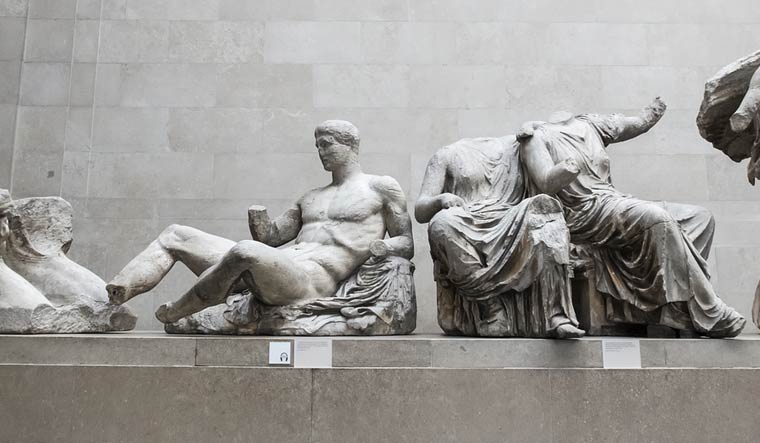A set of ancient Greek marble carvings stolen over two hundred years ago by a British Earl and that now reside within the British Museum have become the latest items to be debated as part of the UK’s proposed free trade deal with the EU, according to reports.
The Parthenon Marbles, also known as the Elgin Marbles, have reportedly been included in the EU’s draft agreement of a proposed free-trade deal with the UK. According to The Times, a draft negotiating mandate has been circulated with a provision, requested for by Greece, that could result in the UK returning the fifth century BC marbles.
According to the draft mandate, “the parties should address issues relating to the return or restitution of unlawfully removed cultural objects to their country of origin.”
The marbles were taken between 1801 and 1804 by henchmen of Thomas Bruce, the 7th Earl of Elgin, at a time when Greece was under the rule of the Ottoman Empire. According to Bruce, the Ottomans had given him a “firman(order)” allowing him to carry out works on the Parthenon and remove any items from it that had historical inscriptions. The original copy of the order, however, has never been found.
Bruce’s actions were met with controversy in England, and the marbles were later purchased from the Ottomans for £35,000 on the advice of a parliamentary committee.
The marbles were damaged while in the British Museum by a pair of schoolboys having a fight in 1961. There have been several other incidents were the pieces have suffered damage. However, while there have been many calls to return the pieces to Greece, there have also been those who said it should remain in Britain.
Sir John Boyd wrote a letter to then UK prime minister Tony Blair in 2002 calling for the marbles to remain in Britain as the Parthenon to which it could be returned was “a ruin that can never now be restored”.
“To remove any element of the collection—Egyptian, Mesopotamian, Greek, Roman, Indian, African, Mexican or Chinese—would be to dismember one of the very few places where the world can discover the world...This is a creative and living achievement of the Enlightenment. The Parthenon, on the other hand, is a ruin that can never now be restored,” he wrote.
A senior EU source told The Times that the clause was inserted at Greece’s request, with the support of Cyprus and Italy.


